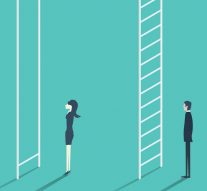
Covid-19: a different International Women’s Day
Employment and Social Affairs 8 March 2021The increasing of inequalities is one of the aspects that characterize the social dimension of Covid-19 pandemic. Women appears to be particularly affected by the difficulties emerged together with the restrictions to fight the virus.
This year’s International Women’s Day is like no other: as countries and communities start to slowly recover from a devastating pandemic, there is a chance to finally end the exclusion and marginalization of women, still existing in some country.
According to the United Nation Development Programme (UNDP), across the world, women remain concentrated in the lowest paid jobs, many in extremely vulnerable forms of employment. Women are nearly twice as likely than men to lose their jobs during the COVID-19 crisis. Indeed, the pandemic will dramatically increase the poverty rate for women and widen the gap between men and women who live in poverty.
Within the European Union the situation is better, but not in all Member States. Women in EU countries have been disproportionately affected by the coronavirus pandemic because they make up the vast majority of workers in health and other front-line jobs, an EU report said on 5th March. The pandemic has also brought a rise in domestic violence against women, the EU’s annual report on gender equality said.
“The Covid-19 pandemic has disproportionately affected women’s lives,” it read adding: “There is already ample evidence that the hard-won achievements of past years have been ‘rolled back”. It appears that women took on more care responsibilities in lockdowns. This has weighed on women’s safety, with domestic violence rising in France, Lithuania, Ireland and Spain during Europe’s first lockdown in the spring of 2020.
According to the report, women also filled more jobs which required personal contact than men and have been hit the hardest by restrictions introduced to fight the spread of Covid-19. “Women’s over-representation in lower-paid sectors and occupations, such as hospitality, retail or personal services, make them particularly vulnerable in the labour markets struck by the Covid-19 crisis,” it said.
Female employment in the EU dropped slightly more than male employment early on in the pandemic and women have since had more difficulties finding new jobs. “In contrast, service sectors that were not as disrupted due to the nature of their activity such as information and communication, finance and insurance, primarily employing men, saw an increase in employment rates,” the report stress warning that the trends could lead to lower pensions for women, widening the gender pension gap and other inequalities “for decades to come“.
The EU Commission wants to force employers to be much more open about how much their staff earn to make it easier for women to challenge wage imbalances and close the gender pay gap. Even though the gender pay gap across the 27-nation bloc has been reduced to 14% for people doing exactly the same work, the European Commission wants to eliminate the disparity by imposing specific rules to make pay levels public.
“For equal pay, you need transparency. Women must know whether their employers treat them fairly,” said EU Commission President Ursula von der Leyen. Since its inception in 1957, the European Union has sought to end such gender bias, but progress has been slow over the decades. When it comes to pension rights, reflecting working conditions of the past 30 to 40 years, the gender gap still stands at 30%.



